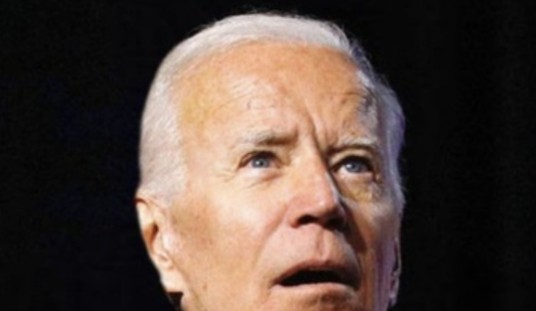I’m tempted to chalk this up to Obamanomics, as Investors Business Daily does, but Barack Obama isn’t the only reason the US has started sliding down the World Economic Forum’s competitiveness charts. The erosion of private-property rights began long before Obama moved into the White House,although he has certainly sped up the process. That’s the real underlying problem noted by the WEF:
The United States now ranks fourth among all nations in competitiveness, down from first just two years ago. Not surprisingly, it’s government — not business — that’s to blame. …
Why did we lose our spot at the top? Broadly speaking, the Geneva-based forum report cites “a weakening of the United States’ public and private institutions, as well as lingering concerns about the state of its financial markets.”
The group stressed that the U.S. remains innovative with a flexible labor market and outstanding higher education. But its soaring deficits, burgeoning debts and declining public confidence in the nation’s leaders and businesses are dragging it down. Finding a way to end the massive federal stimulus of the last two years will help boost U.S. competitiveness, the WEF also said.
The report doesn’t come right out and say it, but it might as well: Not only is Obamanomics not working, it’s doing material damage to America’s economic well-being.
It certainly hasn’t helped that under Obama and Democrats, government has grown more confiscatory and intruded farther into private markets. ObamaCare is the best example, but the proposed cap-and-trade system would have been worse, impacting every single home and industry directly with higher costs that eventually transfer massive amounts of capital back to Washington. There, Congress would have put itself into the task of picking winners and losers in energy markets instead of allowing the markets to work that out for themselves — in other words, using the competitive pressures of markets determine outcomes rather than political cronyism. That goes to the heart of competitiveness, and shows why we’re declining.
But that is really a symptom of a deeper ill, as Business Insider noted earlier in the week:
Take property rights. They’re at the essence of US capitalism. Last year, according to the WEF’s survey of executives, the US was the 30th best country. This year we’ve fallen to 40th.
And you’ll be stunned at the countries that our better than the US.
If readers aren’t stunned by the nations listed, then they’ll be stunned by the length of the list, at least. No one will be terribly put out to see Canada (10), Austria (9), or Switzerland (1) ahead of the US. But what about Saudi Arabia (28)? China (38)? Jordan (30)? The US got edged out by Gambia, which relies on foreign aid to deal with high unemployment and underemployment, according to the CIA factbook.
If we want to improve our economy, we need to improve our competitiveness. If we want to improve competitiveness, we need to protect property rights and get the federal government out of the redistribution business. Property rights are the first rights mentioned in the Constitution (Article I, Section 8) for a reason. It’s the basis of prosperity and opportunity, and also the basis of a free, self-governing people. Falling behind China in property rights should be a national embarrassment, and a reminder of just how far we have traveled from our founding principles. And that journey didn’t start with Barack Obama, even if he’s been busy hitting the accelerator.







Join the conversation as a VIP Member